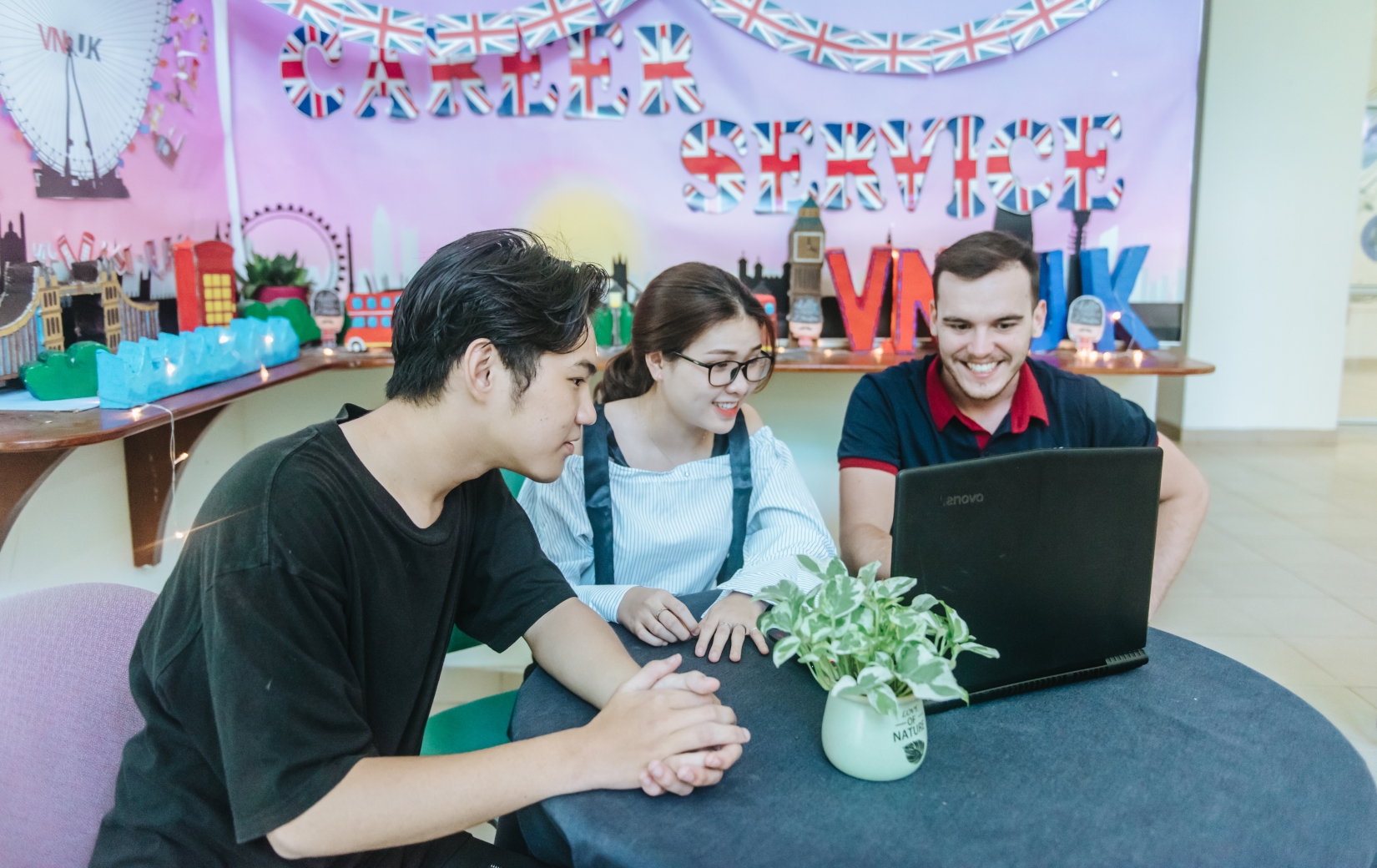Create a diverse learning environment for students
Short-term domestic and international student exchange programmes are a trend in education that universities are aiming for. The purpose of such programmes is to provide students with the opportunity to experience a diverse learning environment and improve the necessary skills of a global citizen.
 |
| International students participate in a short-term exchange programme at the Vietnam - UK Institute for Research and Training Education. Photo: NGOC HA |
Diversifying learning environments
Ten economic higher education institutions nationwide have signed a cooperation agreement on training, conducting scientific research activities and ensuring educational quality since 2022.
One of the highlights of the agreement is that students have the opportunity to study and exchange short and long-term courses at schools. Accordingly, in the first semester of the 2023 - 2024 academic year, two students from the Ha Noi-based Banking Academy of Viet Nam studied at the Da Nang University of Economics. Meanwhile, the Da Nang University of Economics sent 7 of its students to study at the National Economics University.
To carry out student exchange activities, before each semester, the Da Nang University of Economics sends the expected timetable to the remaining 9 universities in the group of economics training schools.
Based on the expected schedule, students who want to participate in the exchange programme will choose subjects and balance the appropriate number of credits to register at schools they are studying.
Vu Ngoc Kieu Giang, a 3rd year student majoring in Foreign Trade of the Da Nang University of Economics, participated in a one-month student exchange programme at the Ho Chi Minh City University of Economics in Vinh Long Province shared, the programme provided her with a good opportunity to experience a different learning environment and make friends at many schools across the country. Aside from studying hours, she took part in arts exchange activities and sports competitions, as well as experienced a day as a volunteer in a series of volunteer programmes.
Not only domestic students, universities promote student exchange programms with foreign universities.
Every year, the Viet Nam-UK Institute for Research & Executive Education under the University of Da Nang welcomes foreign students, and sends its students to universities in the UK, the US, Australia, Norway, South Korea, Singapore, Japan and Hungary.
These programmes include not only short-term exchanges but also one- or two-semester ones that meet the diverse needs and desires of students.
Pham Nhu Uyen Nhi, the final year student majoring in International Business and Management of the Viet Nam-UK Institute for Research & Executive Education, participated in the student exchange programme at the Yonsei University based in South Korea. She noted that the exchange programme helped her experience the learning environment and culture of your country, and improve her foreign language skill.
Promoting short-term exchange activities
Associate Professor, Dr. Nguyen Hong Hai, Vice Rector of the Da Nang University of Science and Technology said that after the signing of the cooperation agreement, the Ha Noi University of Science and Technology, the Da Nang University of Science and Technology and the University of Science and Technology under National University of Ho Chi Minh City have had many working sessions at the faculty level to discuss the organisation of short-term courses, and build common lectures.
With mutual credit recognition, students can choose subjects and lecturers from one of three schools to have the best knowledge for career orientation.
Meanwhile, Associate Professor, Dr. Doan Ngoc Phi Anh, Head of Training Department of the Da Nang University of Economics, acknowledged that the student exchange programme between schools in the same block and training sector is only in the start-up phase.
“This is a new process, so schools must supplement it in software construction to be able to store student-related information. This not only serves the immediate task of student management but also takes into account the case in the future when alumni return to school to confirm information about their learning process" Mr. Phi Anh said.
Regarding international student exchange, Mrs. Nguyen Thi My Huong, Director of the Viet Nam-UK Institute for Research & Executive Education, said that the biggest advantage of short-term student exchange programmes with international schools is to facilitate students to access a new educational environment, being able to learn advanced methods and innovations from prestigious universities abroad. This not only helps students expand their knowledge and skills but also creates opportunities for them to develop an understanding of global culture and society, enhancing their ability to adapt and work in a multicultural environment.
Reporting by NGOC HA - Translating by M.DUNG